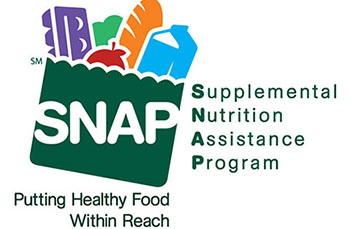By Elizabeth Tansing, Vice President, State Government Affairs, FMI

So far, August is quiet in the FMI State Affairs Department. Only a smattering of states are left in session to finish budgets or address other issues in special session. Normally, I’d be packing my bags this time of year to head to FMI’s annual State Issues Retreat.
But, for the first time in more than twenty years, the event left its traditional August timeframe and was held in mid-July in Park City, Utah. And for the first time, it immediately followed the FMI Legal Conference, so members had the option of going to both.
Retreat Participation
In the good news department, FMI State Issues Retreat attendance was back up to pre-pandemic numbers. Participants included traditional grocery members, FMI product supplier members and state retail and grocery associations. Our sponsors – American Beverage Association (ABA), Consumer Healthcare Products Association (CHPA) and FMI member Instacart – contributed to discussions on sustainability, pharmacy and home delivery of grocery products.
Sustainability Focus
And in the even better news department, FMI President and CEO Leslie Sarasin told Retreat attendees during her keynote speech that shoppers are increasingly focused on making purchasing decisions that align with their beliefs on sustainability. For instance, almost 60% of consumers seek to only buy the amount of food they need and minimize food waste (check out our blog series on sustainability in the food industry; this one focuses on food waste). She was pulling data from FMI’s 2023 U.S. Grocery Shopper Trends research, which focuses on shoppers' weekly grocery spend and evolving grocery habits. (Stay tuned and sign up for our August Trends report, which will look at consumer behaviors as they wrap up summer and the “back-to-school” season begins).
Ameripen, an organization FMI belongs to which focuses on public policy for the entire packaging industry, spoke to Retreat attendees about evolving sustainability issues. Thirty-six extended producer responsibility (EPR) bills were tracked by Ameripen in 2023, along with another 100 or so related to packaging. After several packaging EPR laws were enacted by 2023, no other EPR bills have had success. Hawaii and Washington saw unsuccessful bills, and although a bill is pending in Massachusetts which has a two-year legislative session, it is not expected to move.
Illinois and Maryland passed bills that stripped out EPR, and instead have advisory councils to be put in place to study EPR.
A New York EPR bill failed to pass for the second time, and in Connecticut, a bill was enacted that sets mandatory recycled content rates for some plastic beverage containers, but EPR was removed from the final version approved by the governor.
Speaking of mandatory recycled rates, we expect to see more of this type of legislation hot on the heels of California’s enacted SB 54 and New Jersey’s SB 2515. Regarding recycling labeling, expect to see more bills in 2024 similar to California’s enacted SB 343, which prohibits the use of the chasing arrows or any other indicator of recyclability on products and packaging unless certain criteria are met.
Other sessions during State Retreat focused on PFAS legislation, bills on interchange fees on state and local taxes, retail theft, labor and workforce issues, animal welfare and housing regulations, sales of alcohol and local challenges.
Mark Your Calendars
And in the great news department? FMI 2024 State Issues Retreat is already on the calendar! If you’d like to join your colleagues in learning about and discussing state and local legislative issues of concern across the states, be sure to join us in beautiful Leesburg, Va. at the Lansdowne Resort. Nestled along the Potomac River and among the foothills of the Blue Ridge Mountains, just minutes from Dulles International Airport, we return to our traditional timeframe, August 5-7.


 Industry Topics address your specific area of expertise with resources, reports, events and more.
Industry Topics address your specific area of expertise with resources, reports, events and more.
 Our Research covers consumer behavior and retail operation benchmarks so you can make informed business decisions.
Our Research covers consumer behavior and retail operation benchmarks so you can make informed business decisions.
 Events and Education including online and in-person help you advance your food retail career.
Events and Education including online and in-person help you advance your food retail career.
 Food Safety training, resources and guidance that help you create a company food safety culture.
Food Safety training, resources and guidance that help you create a company food safety culture.
 Government Affairs work — federal and state — on the latest food industry policy, regulatory and legislative issues.
Government Affairs work — federal and state — on the latest food industry policy, regulatory and legislative issues.
 Get Involved. From industry awards to newsletters and committees, these resources help you take advantage of your membership.
Get Involved. From industry awards to newsletters and committees, these resources help you take advantage of your membership.
 Best practices, guidance documents, infographics, signage and more for the food industry on the COVID-19 pandemic.
Best practices, guidance documents, infographics, signage and more for the food industry on the COVID-19 pandemic.
